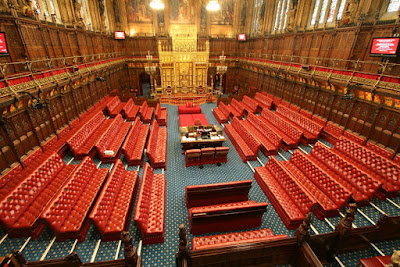A couple of days ago a very interesting discussion took place on the TV Licence Resistance forums.
If you aren't a member of the TV Licence Resistance forums then please pop over and register there.
New member Nigel 61 is legally licence free and the proud owner of an Amazon Firestick. He explains that he only ever watches non-BBC on-demand programmes (read more about the closure of the so-called iPlayer loophole), so therefore does not legally require a TV licence. He is absolutely correct on that point of law. He also explains that the Firestick's ITV Hub application has the option of watching ITV programmes "live" at the time of broadcast, but he realises that doing so legally would require a valid TV licence. Again, he is absolutely correct about that.
Nigel 61 is concerned that should TV Licensing somehow gain access to inspect his equipment, the ability to receive "live" TV programmes could be used as the basis for a prosecution. We can understand his concern, but have reassured him that the mere ability to receive "live" TV programmes is not enough evidence, by itself, for TV Licensing to prove the offence of unlicensed TV reception.
We refer again to the very important, binding legal precedent set by the case of Jeffrey Rudd vs. the Secretary of State for Trade and Industry. There are a lot more details about this 1987 House of Lords Appeal in our earlier article, but the general gist is as follows: For a defendant to be guilty of TV licence evasion, the prosecution (TV Licensing) must prove that a television receiver was actually used, and not merely that it was available for use.
This means that unlicensed possession of a television receiver is not an offence, unless it is actually used as a television receiver. That's a sensible legacy decision given that nowadays virtually everyone has the ability to receive "live" TV programmes via their mobile phone, but virtually no-one actually uses their mobile phone as a television receiver.
The Law Lord passing judgment, the late Lord Goff of Chieveley, did say that in the absence of any other reasonable explanation, the court might infer that the presence of a television receiver did mean it was being used for a licensable purpose. He also acknowledged that his judgment may cause difficulties for the prosecution in proving its case.
In layman's terms the judgment means that the court has to consider any reasonable defence that television receiving equipment, even thought it was present in an unlicensed property, was not actually being used for receiving "live" TV programmes.
That defence could be that the equipment was only being used:
- To watch non-BBC on-demand programme services, which were being streamed via the internet;
- To watch pre-recorded DVDs;
- As a games console/computer monitor;
- To view CCTV images;
- To listen to radio programmes;
- To display images held on a removable storage device (e.g. to view a slideshow of photos held on an SD card).
None of these circumstances requires a TV licence.
Anyone caught with a television receiver in their property could offer the perfectly valid defence that it wasn't in use, but was present for some non-licensable purpose (e.g. for listening to radio or playing video games). Alternatively they could offer the perfectly valid defence that the television receiver wasn't in use during an unlicensed period, because the property was unoccupied at the time (e.g. they were on holiday or stopping with relatives).
Should they arrive in the unfortunate position that TV Licensing is gathering evidence against them, the occupier of an unlicensed property should ensure that any defence is accurately recorded in writing from the outset.
If you've found this article useful please support us by using our link the next time you shop at Amazon. You can also support us by liking us on Facebook, following us on Twitter or downloading our free ebook.

1 comment:
I wouldn't worry too much about any investigations - the BBC Clown Goons are really only interested in getting commission - they prefer the easy money route of a quick confession. Just don't give them any commission and eventually they loose interest - I haven't had them round for years.
Post a Comment